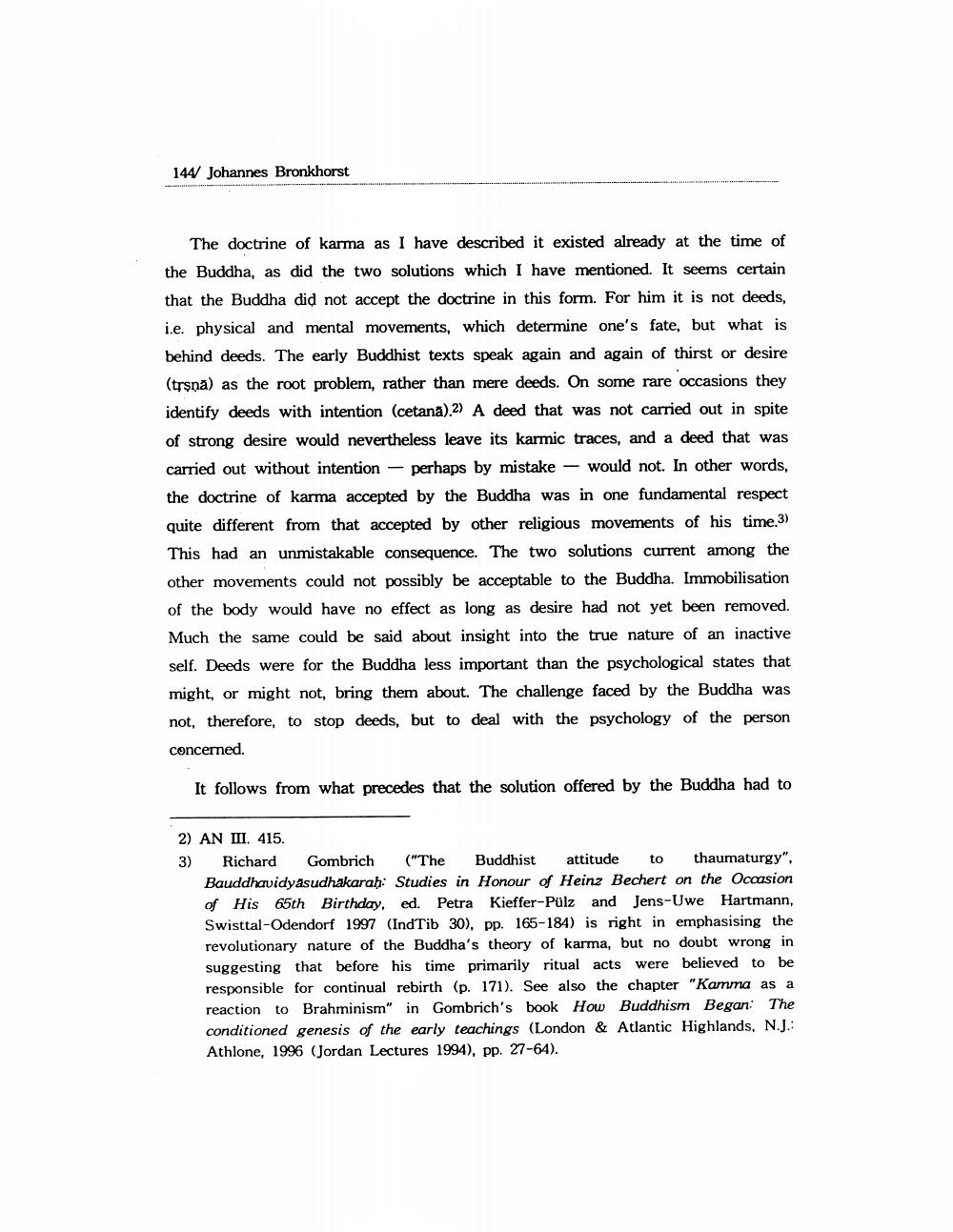Book Title: Self And Meditation In Indian Buddhism Author(s): Johannes Bronkhorst Publisher: Johannes Bronkhorst View full book textPage 4
________________ 144/ Johannes Bronkhorst The doctrine of karma as I have described it existed already at the time of the Buddha, as did the two solutions which I have mentioned. It seems certain that the Buddha did not accept the doctrine in this form. For him it is not deeds, i.e. physical and mental movements, which determine one's fate, but what is behind deeds. The early Buddhist texts speak again and again of thirst or desire (trṣṇa) as the root problem, rather than mere deeds. On some rare occasions they identify deeds with intention (cetana).2) A deed that was not carried out in spite of strong desire would nevertheless leave its karmic traces, and a deed that was carried out without intention - perhaps by mistake would not. In other words, the doctrine of karma accepted by the Buddha was in one fundamental respect quite different from that accepted by other religious movements of his time.3) This had an unmistakable consequence. The two solutions current among the other movements could not possibly be acceptable to the Buddha. Immobilisation of the body would have no effect as long as desire had not yet been removed. Much the same could be said about insight into the true nature of an inactive self. Deeds were for the Buddha less important than the psychological states that might, or might not, bring them about. The challenge faced by the Buddha was not, therefore, to stop deeds, but to deal with the psychology of the person concerned. It follows from what precedes that the solution offered by the Buddha had to 2) AN III. 415. 3) Richard Gombrich ("The Buddhist attitude to thaumaturgy", Bauddhavidyasudhakarah: Studies in Honour of Heinz Bechert on the Occasion of His 65th Birthday, ed. Petra Kieffer-Pülz and Jens-Uwe Hartmann, Swisttal-Odendorf 1997 (IndTib 30), pp. 165-184) is right in emphasising the revolutionary nature of the Buddha's theory of karma, but no doubt wrong in suggesting that before his time primarily ritual acts were believed to be responsible for continual rebirth (p. 171). See also the chapter "Kamma as a reaction to Brahminism" in Gombrich's book How Buddhism Began: The conditioned genesis of the early teachings (London & Atlantic Highlands, N.J.: Athlone, 1996 (Jordan Lectures 1994), pp. 27-64).Page Navigation
1 2 3 4 5 6 7 8 9 10 11 12 13 14 15 16 17 18 19
